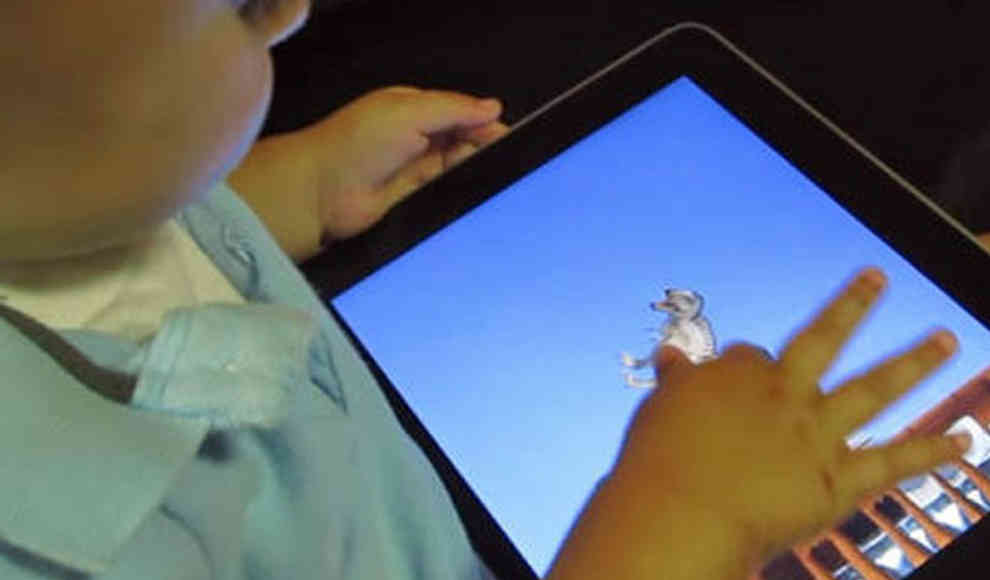Babies and young children are increasingly confusing reality with the world of touchscreens on mobile phones and tablet computers, according to parents and researchers. This is evident in the typical finger movements that babies try to apply in the real world, such as swiping, zooming, and touching objects. This behavior is becoming more common, and experts are becoming alarmed. For example, a two-year-old boy at a zoo in Zurich tried to zoom in on the fish in an aquarium by moving his fingers apart, as if he were using a tablet. This behavior is not limited to the zoo; children are trying to apply the same tactics in many areas of real life, such as trying to enlarge their favorite cartoon character on TV or swiping to the next page in a magazine.
Thomas Merz, a professor of media education at the Thurgau University of Teacher Education, is not surprised by this behavior. He explains that touchscreen functions are deliberately designed to mimic typical physical movements. Babies are applying the successful experiences they have had with smartphones and tablets to the real world. However, what is happening in the babies’ brains when they imitate touchscreen movements in reality has not yet been researched. Miriam Beisert, a developmental psychologist at the University of Zurich, is currently conducting a research project on the differences between early childhood behavior in the real world and behavior on a tablet.
While direct touch on a touchscreen can be a rewarding experience for babies, it can also lead to a reduction in sensory experience. Professor Merz emphasizes the importance of children experiencing the world with their own senses, such as playing in the sand and woods, using real wooden blocks, and interacting with real animals. These experiences provide the necessary foundation for healthy development. As more and more children are exposed to touchscreens at an early age, it is important for parents and educators to be aware of the potential impact on children’s development and to encourage a balance between screen time and real-world experiences.










